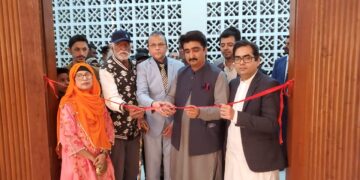As the sacred month of Ramazan approaches, Pakistan braces for the recurring challenge of providing affordable essential goods to the public. Historically, temporary Ramazan Bazaars have been set up to stabilize prices, but their high costs and short-term impact highlight their unsustainability.
In Punjab, the Punjab Model Bazaar Management Company (PMBMC) offers a game-changing alternative: permanent, self-sustaining Model Bazaars that operate year-round without government subsidies. These bazaars provide essential goods at prices consistently 10–15% lower than the market, ensuring quality, affordability, and transparency.
The Punjab government’s recent allocation of Rs. 3.4 billion to establish 13 new Model Bazaars signals a shift toward sustainable public welfare. Unlike the inefficient Utility Stores Corporation (USC), Model Bazaars are financed through affordable stall rentals, eliminating the need for recurring subsidies. Plans to expand the network to tehsil levels could further benefit rural areas, supporting local economies and creating jobs.
As hubs of economic activity, Model Bazaars are redefining relief efforts by combining affordability with efficiency. The government can enhance their impact by integrating technology for vendor registration, price monitoring, and public engagement. Transitioning the initiative to an authority-based structure ensures better governance and scalability.
With Ramazan just months away, Punjab faces a pivotal decision: continue with costly temporary solutions or embrace the transformative potential of Model Bazaars. By investing in this visionary initiative, the province can deliver sustainable relief to millions, ensuring long-term public welfare.




















